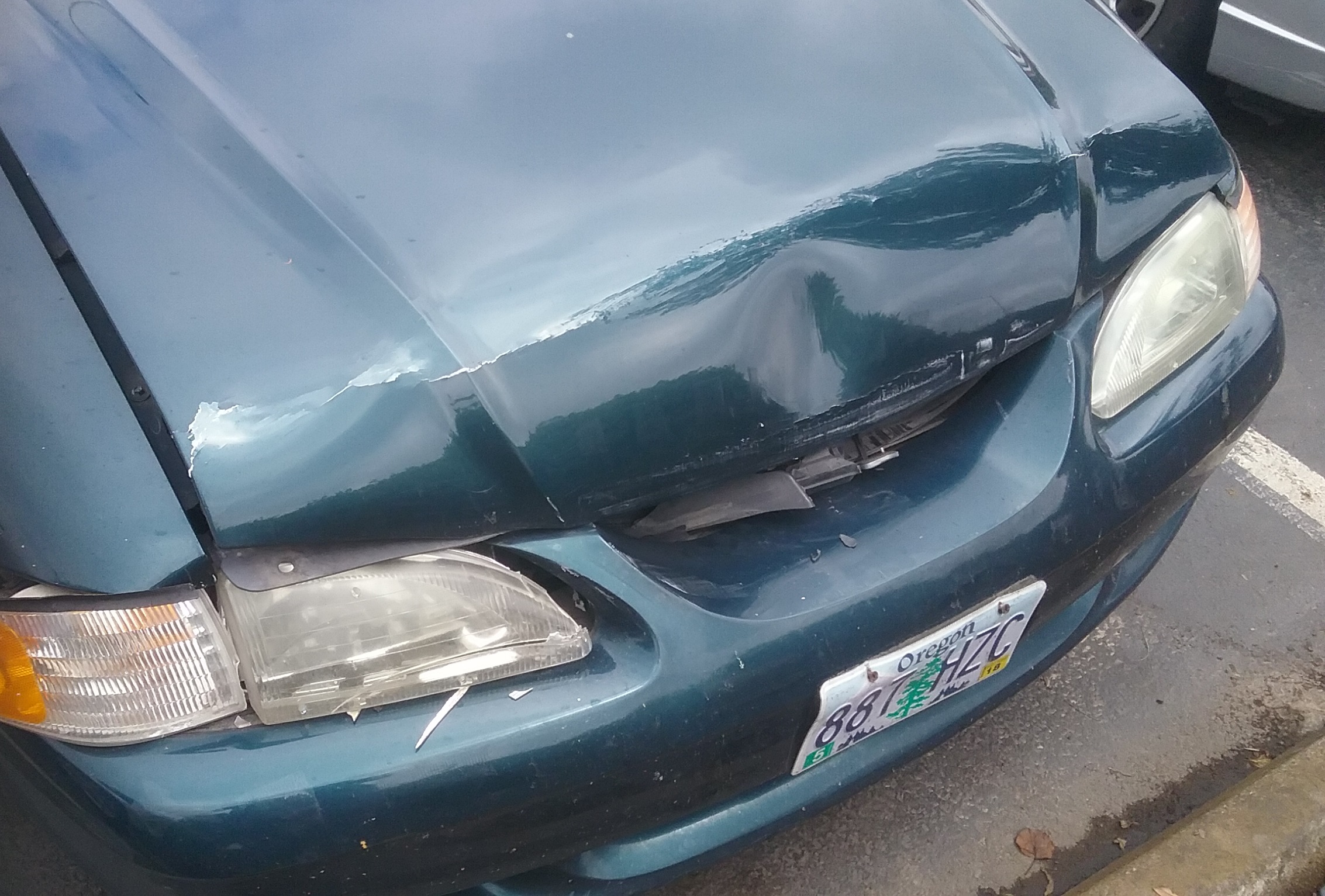
Crash Course: A Minor Collision Reveals How Willing We Are to Discard Limited Natural Resources
A few weeks ago, I rear-ended another car when I was taking my son to swimming lessons. We were going about 5 mph and nobody was hurt. It really seemed minor, but the autobody shop told me I caused enough damage that the insurance company might declare the car a total loss and would just write me a check instead of repairing the car. While that makes financial sense for the insurance company, I’m not sure it makes sense on a planet of finite resources.

A few weeks ago, I rear-ended another car when I was taking my son to swimming lessons. We were going about 5 mph and nobody was hurt. It really seemed minor: my purse didn’t even fall off the front seat, and my son was more interested in the fact that I swore than that we had collided with another car. I was able to drive home and then cruised down the freeway to the autobody shop the next morning. However, a few days later the shop called to say that the insurance company might declare the car a total loss.
My low-speed collision caused a fair bit of damage that I hadn’t been able to see from the outside. Not only did I damage the hood, bumper, and headlight, but I also squashed lots of hidden car parts I’ve never heard of. The estimated repair cost was in the ballpark of $5,000 – and that might mean the insurance company would decline to pay for repairs. While that makes financial sense for the insurance company, I’m not sure it makes sense on a planet of finite resources.

Not my car, but a representative photo to show approximately the level of visible damage I did to my car. Photo: Josh Baumgartner via Wikimedia, CC BY-SA 4.0.
An insurance company will pay for repairs only if they cost less than the car’s value on the used car market. If the repairs are more expensive than that, it is cheaper for the insurance company to write a check for me to buy a used, replacement vehicle. When an insurance company determines the repairs are more costly than the car is worth, it deems the car to be a “total loss.”
Right now, prices in the used car market are low and it costs relatively little to purchase a decent used car that’s only a few years old. That means that the cost of repairs to a car like mine – a 10-year-old Prius with 80,000 miles – can quickly add up to more than the cost of buying a replacement used car, and increases the odds that the insurance company will decline to pay for repairs.
All of this is very logical from an immediate dollars-and-cents perspective, but from a longer-term view it doesn’t make much sense.
While it is true that my car doesn’t have much value in today’s used car market, it is a much better car than others I’ve relied on in past decades. My decade-old but very solid car is a nicer car than the cars my parents owned when I was growing up. The new Honda Civic they bought in 1983 didn’t have airbags, air conditioning, or power steering. Their next new car, purchased in the mid-1990s, had airbags and air conditioning, but the car would overheat if you drove up a hill with the A/C on. And both of those cars required more gas than my Prius. Fixing my current car will cost less money than either of those cars cost when new, and will give me access to a much better vehicle. It seems crazy that my current car might be considered expendable.
From the perspective of how we use the planet’s finite resources, it also seems odd that a product as resource-intensive as a car could so easily be discarded when the critical pieces of it still work just fine. Sure, if the car is a “total loss” much of it might be recycled, but that isn’t able to fully capture the embodied energy in the car – the energy that was used to obtain metal and petroleum and manufacture those into car parts. It seems far better to invest a bit of money in keeping the car functional so that the maximum value can be obtained from all the energy and resources that have already been put into the car.
For now, I don’t have to reckon with my role in discarding valuable resources. The insurance company decided that my car is worth more than the cost of repairs, and thus did not declared it totaled. I’ll soon have the car back from the shop, along with a renewed sense that society needs a better approach to how to make the best use of the earth’s resources.
Topics
Authors
Elizabeth Ridlington
Associate Director and Senior Policy Analyst, Frontier Group
Elizabeth Ridlington is associate director and senior policy analyst with Frontier Group. She focuses primarily on global warming, toxics, health care and clean vehicles, and has written dozens of reports on these and other subjects. Elizabeth graduated with honors from Harvard with a degree in government. She joined Frontier Group in 2002. She lives in Northern California with her son.
Find Out More

Too much of a good thing? The environmental downside of the “Stanley cup” craze.

A look back at what our unique network accomplished in 2023

Consumerism harms us and the environment. These communities prove we can do better.

